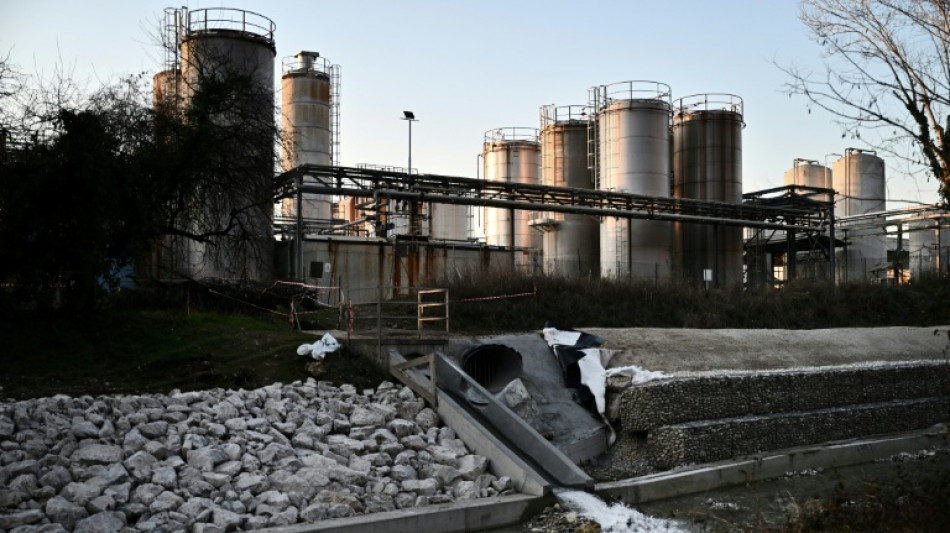

Verdict expected in Italy 'forever chemicals' trial
A verdict is expected Thursday in the trial of 15 managers of a chemical plant accused of knowingly contaminating the water of hundreds of thousands of people in Italy.
The now-shuttered Miteni factory near the northeastern city of Vicenza is alleged to have polluted one of Europe's largest groundwater basins with PFAS, dubbed "forever chemicals" because they never break down.
The prosecution alleges that the plant in Trissino, which produced PFAS from 1968 and was run by three companies until its closure due to bankruptcy in 2018, leaked chemical-laced wastewater into a waterway, polluting a vast area between Vicenza, Verona and Padova.
Fifteen managers from Mitsubishi, International Chemical Investors (ICIG) and Miteni are charged with contaminating nearly 200 square kilometres (77 square miles) of drinking water, as well as soil.
Prosecutors in the trial, which began in 2021, have called for the managers to be sentenced to a total of 121 years in jail, lawyer Edoardo Bortolotto told AFP Thursday.
Over 200 civil plaintiffs have joined the trial, including Greenpeace and local mothers who united after discovering their families had the chemicals in their blood.
PFAS have been used since the late 1940s to mass produce the nonstick, waterproof and stain-resistant treatments that coat everything from frying pans to umbrellas, carpets and dental floss.
But chronic exposure to even low levels of the chemicals has been linked to liver damage, high cholesterol, reduced immune responses, low birthweights and several kinds of cancer.
The contamination was discovered in 2013 after Italy's environment ministry ordered tests of the Po River following a 2006 European project assessing exposure to such chemicals in rivers.
Of all the rivers studied, the Po had the highest concentrations of one specific PFAS called PFOA, a known carcinogen. Further investigation identified Miteni as the source.
At the time, there were no Italian or EU thresholds for PFAS content in drinking water, according to a regional report by the World Health Organization (WHO).
W.Dupont--JdB



